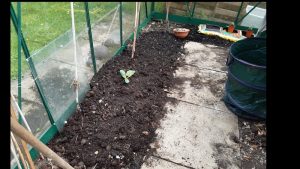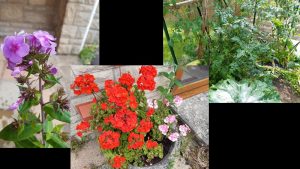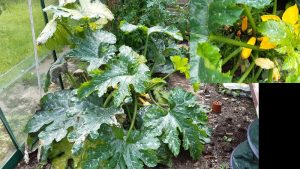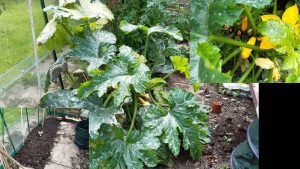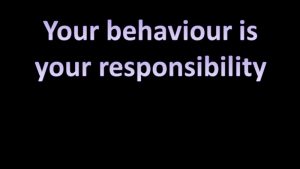Trinity 7 – Romans 8 26-29, Matthew 13:31-33,44-52
Alison’s reflection: https://www.youtube.com/watch?v=UE0rUkze5ps
Bishop Peter’s reflection: https://youtu.be/hUo7vpV5evk
In the name of God, Father, Son and Holy Spirit Amen
`When you look at our extract from Romans set for today, it is very easy to be in awe of St Paul’s confidence, hope and assurance in God. He ends our reading with a wonderful and very well known statement about how he is convinced that despite a whole list of forces ranked up against us – there really is nothing that is able to separate us from the love of God in Christ Jesus our Lord. What a list of forces it is. Death, life, angels, rulers, powers, height, depth, and any other creatures…
In the battleground of the average Christian life that list sounds like everything the world has to throw at us and more. We are going to think through why Paul included these in his list and what we can learn and apply to ourselves, particularly in reference to our confidence in our faith in God, and our hope in all Jesus did for us.
So Paul starts his list of forces, over which we are more than conquerors – that is forces that God is greater than – with death. Probably he starts with death as this finishes off the thrust of the theme embedded in most of the last three chapters of Romans. In a nutshell, this is that those in Christ, who share in Christ’s death, also share in his resurrection and for them dying should hold no fears. The reason that death should hold no fears is through the hope we have in the promise of eternal life with God. There is no harm in repeating again the teaching that this hope and promise is just as relevant and there for us today as it was in the time of Paul. It should be a source of great strength and hope to us as it was to Paul. For a Christian – all life has worth and purpose. As Christians we have something really substantial in this and something that it is helpful, hope-filled and meaningful to share with others
Having dealt squarely with death, Paul goes on to life. This is one of two references in the list of forces to our experiences of life. These experiences no matter how tough it gets cannot separate us from the love of God. I think this first reference may be more about the trials and temptations of life and the choices we have. In a Paul like fashion I think he is particularly pointing to our weaknesses and temptations. I think that this reference helps us to remember that even when we have made wrong choices, given into temptation and come back to God with heavy hearts, asking for his forgiveness – that forgiveness is always there. I will come back to the other aspect of life – enduring what life has to thrown at us when we talk about things present shortly.
Next on Paul’s conquered forces list somewhat surprisingly is angels. What Paul actually believed here is interesting. Times were very different. Today we tend to view Angels as a very positive force, but then the devil is just a fallen angel… One commentator I read said – Paul believed in ‘Nameless forces which threaten the creator’s work and purpose, and that these were in the end impotent before the God over all’. Paul is reassuring us that spiritual forces opposed to God cannot get in the way of God’s love for us. That sounds good to me
Paul then goes on to in his forces list to something we can better understand – that is rulers. Clearly from time to time Paul fell foul of the authorities, but Paul is clear that God is greater and bigger and more important than any rule, reign or government.. It is an interestingly subversive way of looking at things. Where worldly rulers get in the way we need to concentrate on God’s love for us first and foremost.
Then Paul moves on to things present. This is the second reference to life. I think it would be fair to say that there were times in Paul’s ministry when the going, the present, got pretty tough. He was beaten, imprisoned, and eventually put to death for his faith. From what we read about him, he seems to have had a very optimistic and encouraging heart, despite all that happened to him. He seemed to rise above his personal circumstances. Maybe because of his confidence in God – that God was with him in things present and there was bright hope for tomorrow. I think this helps us to remember in our things present, no matter how bleak and black it looks to us currently, God is still with us in it. God’s love surrounds and supports us on every step (not just when the going is good) and this helps us remember that God is there in the every day. This again should be a source of inspiration based on God’s love for us, irrespective of how tough it is… If that’s you currently, struggling with each and every day and all seems bleak and black – Think on…. and be assured – God loves each of us and loves us more and more.
Having talked about the here and now – Paul then focuses on things to come. Paul is very conscious of the dimension of time and how God is beyond time and our limited understanding. For Paul and for us, God was there at beginning, is there now and will be there for evermore – our Creator and Sustainer. It is so easy to get wrapped up in our fears about what tomorrow, next week, next year will bring with all the uncertainty of our current times. I think this is particularly true at the moment. It is worth remembering that these things no matter how alarming, frightening, or devastating it has been or it gets they cannot separate us from God’s love for us.
And then Paul turns his attention to powers not interfering with God’s love for us. Here powers are separated from rulers. Again we are guessing at Paul’s motivation here…. Perhaps he was showing that power can be vested in many people and things without them being ‘in power’ so to speak. Use and abuse of power in our society and our lives is a very thorny issue. I think we need to be very conscious of our use of any power we have and be diligent and compassionate in our use of it…
So from powers to the last three forces Paul uses. The first two of these are really dimensions – It starts with height and depth. Paul is using the spatial and astronomical terms of his day to describe the full sweep of things visible and invisible to the human eye. He goes on ‘nor anything else in all creation’ – a final catch all statement to cover anything not included in the list we have been working through. Meaning frankly and anything else you can think of. This tunes with his underlying message that God is more than and greater than anything we can imagine.
That concludes our tour through the forces that cannot separate us from God’s love for us in Jesus Christ our Lord. I remain in awe of Paul for his confidence, hope and audacity to make this statement in the first place. But I hope we will all reflect on how much God has done for us through Jesus Christ our Lord, and how our confidence, and hope can be lifted and our resolve strengthened by remembering this verse. Paul said – For I am convinced that neither death, nor life, nor angels, nor rulers, nor things present, nor things to come, nor powers, nor height, nor depth, nor anything else in all creation, will be able to separate us from the love of God in Christ Jesus our Lord.
Maybe as some homework we might want to take Paul’s list which is death, life, angels, rulers, powers, the present, the future, height, depth, and any other creatures… and think through how each of his forces applies in our life and the weak points. As we undertake this exercise note any additional things that come to mind, or that the Holy Spirit moves us to consider. The resulting list would be different for each of us, help us to act more wisely and own up to our own limitations better, and identify situations where more prayer is regularly needed to help us on our journeys. But the truth is the same – Nothing, but nothing can separate us from the love of God in Christ Jesus our Lord, AMEN.
The New Revised Standard Version (Anglicized Edition), copyright 1989, 1995

